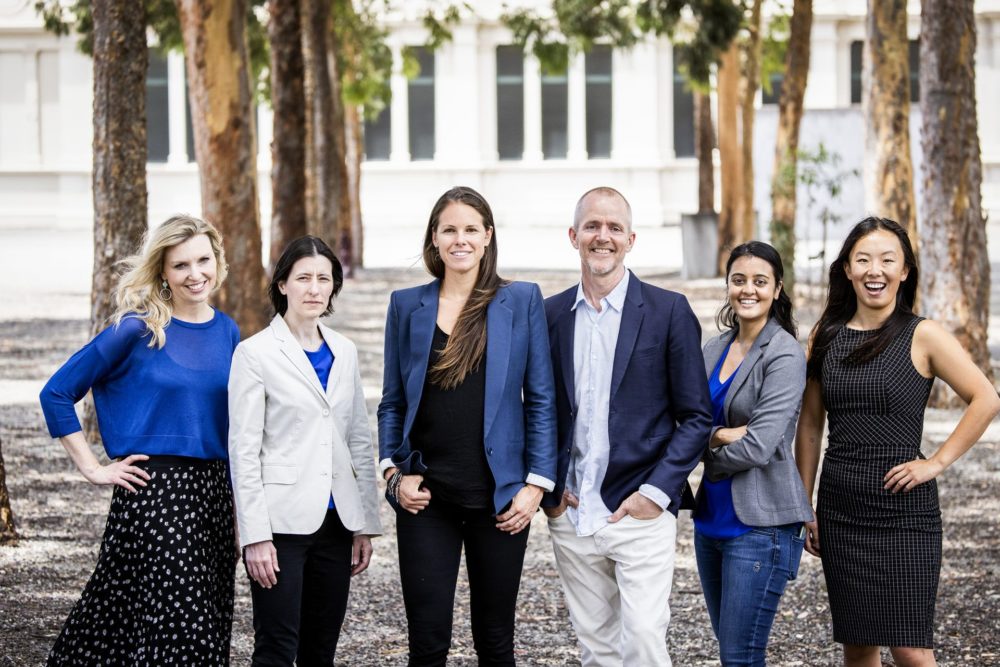Australia-based agrifoodtech investor Tenacious Ventures announced the final close of its first VC fund this week, raising A$35 million ($26.8 million) from a diverse group of limited partners to target Seed and Series A rounds.
The fund’s two cornerstone investors — the Australian federal government’s Clean Energy Finance Corporation and Grok Ventures — made commitments worth A$8 million as part of the A$20 million first close announced in March last year. Grok is the personal investment fund of Atlassian co-founder Mike Cannon-Brookes and his wife, Annie.
Beyond that, Fund I’s backers include several agribusiness corporates and executives, family offices, high net worth individuals, and farmers, Tenacious general partner Sarah Nolet tells AFN.
“Together, they all offer a combination of tech and climate impact expertise, and a passion for agriculture,” she says.
Tenacious claims to be Australia’s first agrifoodtech-specialized VC firm. While the country’s agtech and foodtech ecosystem has grown at rapid pace in recent years, producing several startups recognized at the global level, many entrepreneurs continued to struggle when it came to attracting funding. Australian investors tended not to have a solid enough understanding of the nascent sector or the networks to make the most of it; while more seasoned agrifood investors overseas saw the Lucky Country as too small an opportunity, and too far away, to commit to.
“One of the reasons we started Tenacious is that we saw a lack of conviction and comfort around agrifoodtech here. Not from the investment perspective itself — we actually had to turn people away from the fund, and were oversubscribed — but those investors really wanted a local, trusted partner [to work with],” Nolet explains.
“We’ve had plenty of keen national and international co-investors on all of our deals. It was having that local partner – that was the piece that was missing. So while there was a lot of interest, there was still that lack of conviction and comfort – and that’s really the gap we sought to fill.”
As an unconditionally registered fund under the Australian government’s ESVCLP scheme, 80% of Tenacious Fund I’s capital must be deployed into locally-domiciled startups.
But the Tenacious team are also setting their sights farther afield.
So far, it has invested in six startups – two of which hail from outside Australia. They are:
-
- Goterra (Australia) – farm waste management using insects, raised $5.55 million in July 2020;
- Nori (US) – blockchain-based carbon credits marketplace, raised $4 million in September 2020;
- Nowadays (US) – plant-based ‘chicken’ nuggets, raised $2 million in May 2021;
- RapidAIM (Australia) – pest monitoring system for crops, raised an undisclosed amount in March 2021;
- SwarmFarm (Australia) – API for ag robots and autonomous farm equipment, raised $3.22 million in October 2020; and
- Vow (Australia) – cell-cultured meats, raised $6 million in January 2021.
“We are a high conviction, high support, sector-specialist investor, so we see it as super important to be embedded in the Australian ecosystem. Sarah and I already are, so this is definitely the place to start,” general partner Matthew Pryor tells AFN.
“But as that kind of investor, and through our related activities as part of our broader group [which includes agritech consultancy AgThentic], we do also get embedded into those other ecosystems – and we’ve developed insights into what can be a winning formula in other major agrifood economies. So where those opportunities have come up, the fund has sought to apply that same lens.”
Nori is one example of a foreign investment that “easily passes that filter,” allowing Tenacious to deliver both impact and returns in equal measure, Pryor says.
‘Impact’ is a keyword for Tenacious. Being Australia’s first specialist VC for agrifoodtech is a milestone in itself. But Nolet, Pryor, and their team are going further than simply investing across the broad swathe of businesses and technologies that can fall within that definition. The firm is focused on funding startups and entrepreneurs that can help ag become less carbon emissive, and more climate-change resilient.
“How we define impact absolutely is in temrs of what it will take to transition the global food system to climate change resilience and carbon neutrality, as a starting point,” Pryor explains.
“In the case of Goterra, it’s simple: a ton of organic waste diverted from landfill offsets a measurable amount of direct CO2 emissions. Sometimes, it can be a little less direct, and we get into second-order impacts – in the case of RapidAIM, the digital crop protection layers it provides help in the transition away from synthetic chemistries to practice changes, bio alternatives, and IPM [integrated pest and crop management].”
“We measure impact on a portfolio company basis,” Nolet adds.
As for the firm’s next steps, she says that it will aim to invest in around 15 companies via Fund I. More immediately, the Tenacious team will ramp up support for its portfolio companies, continue building a deal pipeline, and work on its own content and with third-party platforms to carry on the work of building awarneess about Australia’s agrifoodtech scene.
“One thing that’s unique for us is we need to do [this engagement work] in both the ag world, and the VC world,” Nolet adds. “That’s part of the fun for sure!”





